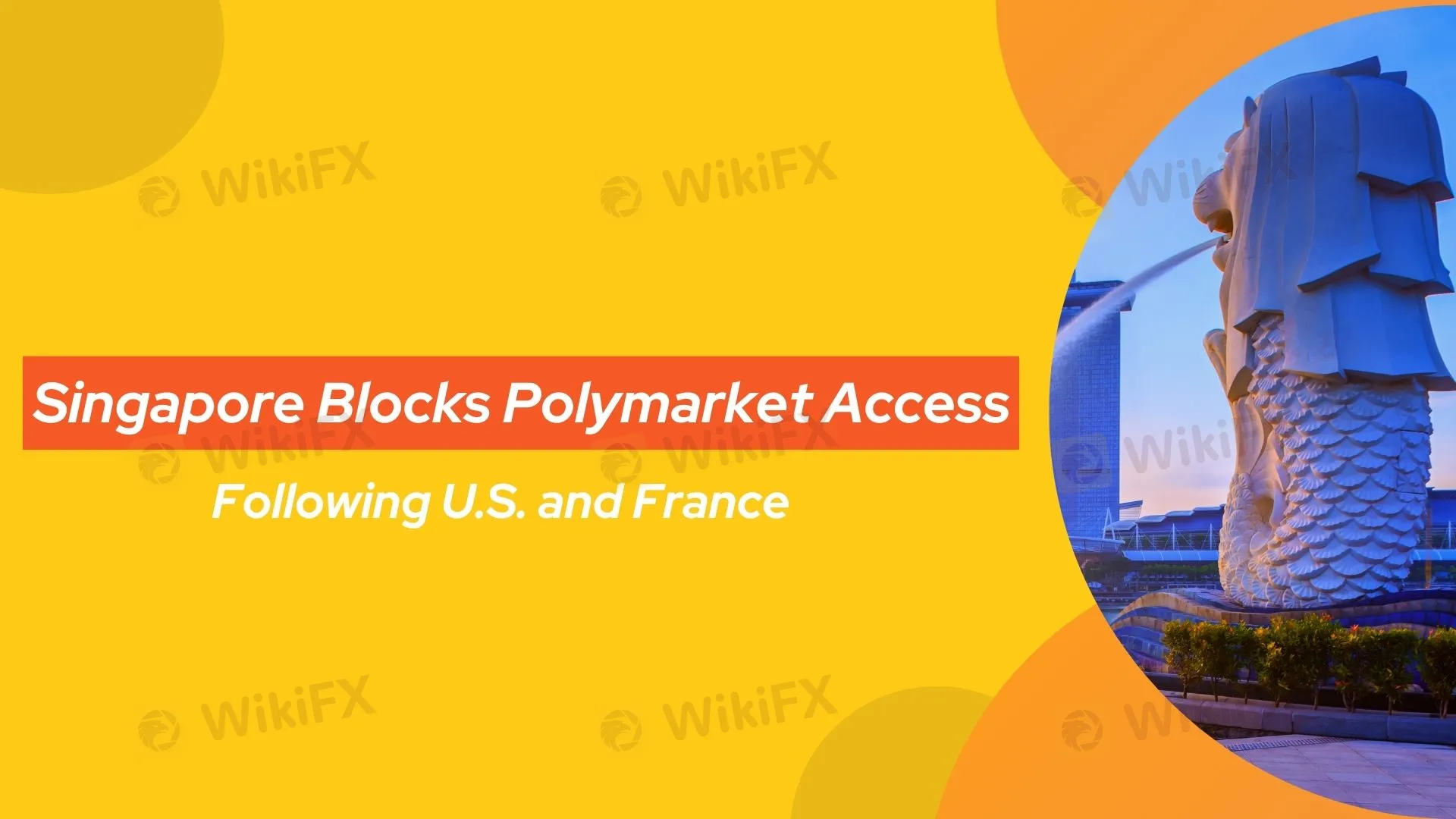Singapore Blocks Polymarket Access, Following U.S. and France
abstrak:Singapore blocks Polymarket over gambling violations. Similar bans in France and the U.S. show growing regulatory scrutiny on decentralized platforms globally.

Reports indicate that Singapore has blocked access to Polymarket. Users attempting to access the platform from Singapore are met with a warning from the Gambling Regulatory Authority (GRA), stating that Polymarket is an “illegal gambling website” operated by an unlicensed provider.

Under the Gambling Control Act 2022, any operator offering gambling services to Singaporeans must obtain a license, with no exceptions. The warning cites Section 20 of the Gambling Control Act, which stipulates penalties of up to SGD 10,000 in fines and six months imprisonment for violations.
What Is Polymarket?

Polymarket is a blockchain-based decentralized prediction market platform that allows users to bet on the outcomes of various topics using cryptocurrency, including politics, sports, and pop culture. The platform operates on the Polygon blockchain using smart contracts to reduce fees and increase transaction speed. Polymarket gained significant traction during the 2024 U.S. presidential election due to its accurate predictions, attracting a large user base and widespread attention from mainstream media.
Regulatory Challenges in Other Countries
While Polymarkets innovation and market appeal have garnered significant attention, its operational model has clashed with legal frameworks in certain countries, leading to bans and regulatory action in France and the United States.
France
In France, Polymarket has been deemed in violation of local gambling laws. The National Gaming Authority (ANJ) ruled that while Polymarket positions itself as a prediction market, its activities closely resemble gambling, particularly when users place monetary bets and receive returns based on event outcomes. Polymarket failed to obtain the gambling license required under Frances strict regulatory standards and lacked sufficient investor protection mechanisms. As a result, French regulators banned the platform from serving local users and issued public warnings against using unregistered platforms.
United States
In the United States, Polymarket faced penalties for violating the regulations of the Commodity Futures Trading Commission (CFTC). The CFTC found that certain Polymarket transactions resembled futures or options, which legally require registration as a Swap Execution Facility (SEF). Polymarket failed to meet this requirement. Additionally, the CFTC raised concerns about the platforms transparency and compliance, suggesting it posed potential risks to investors and could be exploited for illegal activities like money laundering. The CFTC fined Polymarket $1.4 million and ordered it to cease operations for U.S. users. To comply, Polymarket restricted access to U.S. IP addresses.
Challenges for Polymarket‘s Compliance
The regulatory actions in these countries highlight the significant challenges Polymarket faces in achieving compliance. While its decentralized business model is innovative, it has created obstacles in meeting the diverse regulatory requirements of different jurisdictions. Polymarket’s struggle underscores the broader tension between blockchain innovation and the evolving global regulatory landscape.
Broker ng WikiFX
Exchange Rate

